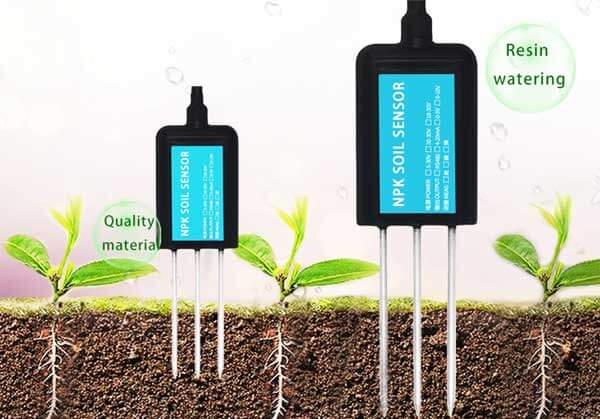Soil is a vital resource that supports agriculture, forestry, and ecosystem health. Understanding soil conditions is crucial for optimizing crop productivity, conserving water, and mitigating environmental impacts. Traditional methods of soil analysis are time-consuming and often provide limited information. However, with the advances in technology, soil sensor technology has emerged as a powerful tool for comprehensive and real-time soil analysis. In this article, we will explore the potential of soil sensor technology and the benefits it offers for sustainable land management.

Understanding Soil Sensor Technology:
Soil sensors are advanced devices designed to measure various parameters that determine soil health and fertility. These sensors utilize cutting-edge technology to collect data on factors such as soil moisture, temperature, pH, electrical conductivity, nutrient levels, and compaction. They can be installed at different depths in the soil profile to capture variations in soil conditions at different layers.
The Functioning of Soil Sensors:
Soil sensors operate by deploying a network of sensors at strategic locations within a field or land area. These sensors are connected to data loggers that collect and store the measurements. Depending on the type of sensor, data can be transmitted through wireless or wired networks to a central database. The collected data is then analyzed to identify patterns, trends, and relationships between different soil parameters.
Data Transmission and Analysis:
The data collected by soil sensors is typically transmitted to a central database through wired or wireless communication networks. Here, agricultural experts, researchers, and land managers analyze the data using advanced algorithms and models. They study the relationships between different soil parameters and their impact on crop growth, water use efficiency, nutrient availability, and overall soil health.
Unleashing the Potential of Soil Sensor Technology:
Soil sensor technology has several advantages and offers numerous benefits for sustainable land management:
Precision Agriculture:
Soil sensors enable precision agriculture practices by providing real-time data on soil conditions. Farmers can use this information to optimize irrigation, fertilization, and crop management practices. By applying water and nutrients precisely where and when they are needed, farmers can reduce resource wastage, increase crop yields, and minimize the environmental impact of agriculture.
Water Conservation:
Soil sensors play a crucial role in water conservation efforts. By monitoring soil moisture levels, farmers can avoid overwatering and irrigation scheduling. This leads to significant water savings and prevents waterlogging and soil erosion. Efficient water management also helps mitigate the impact of droughts on crop production.
Nutrient Management:
Soil sensors provide insights into soil nutrient levels, enabling farmers to apply fertilizers judiciously. By applying precise amounts of fertilizers based on actual nutrient requirements, farmers can minimize nutrient runoff, which contributes to water pollution. This approach reduces costs and minimizes environmental impacts, promoting sustainable agriculture practices.
Soil Health Monitoring:
Soil sensors allow continuous monitoring of soil parameters such as pH, electrical conductivity, and compaction. This data helps identify areas of concern and potential soil degradation. By detecting soil health issues early, farmers and land managers can take proactive measures to improve soil quality and prevent long-term damage.
Environmental Stewardship:
Soil sensor technology promotes environmental stewardship by enabling sustainable land management practices. Land managers can use soil sensor data to implement land-use strategies that minimize soil erosion, preserve biodiversity, and protect sensitive ecosystems. This technology also facilitates the monitoring of soil carbon sequestration, aiding efforts to mitigate climate change.

Conclusion:
Soil sensor technology has immense potential for revolutionizing sustainable land management. By providing real-time data on soil conditions, these sensors empower farmers, land managers, and researchers to make informed decisions and implement precision agriculture practices. The benefits of soil sensor technology include increased crop productivity, water conservation, improved nutrient management, enhanced soil health monitoring, and environmental stewardship. As technology continues to advance, soil sensors will become even more sophisticated, providing comprehensive insights into soil conditions. Embracing this technology is crucial for ensuring food security, promoting sustainable agriculture, and protecting our precious soil resources. By digging deeper with soil sensor technology, we can unlock the full potential of our soils and pave the way for a sustainable future.
